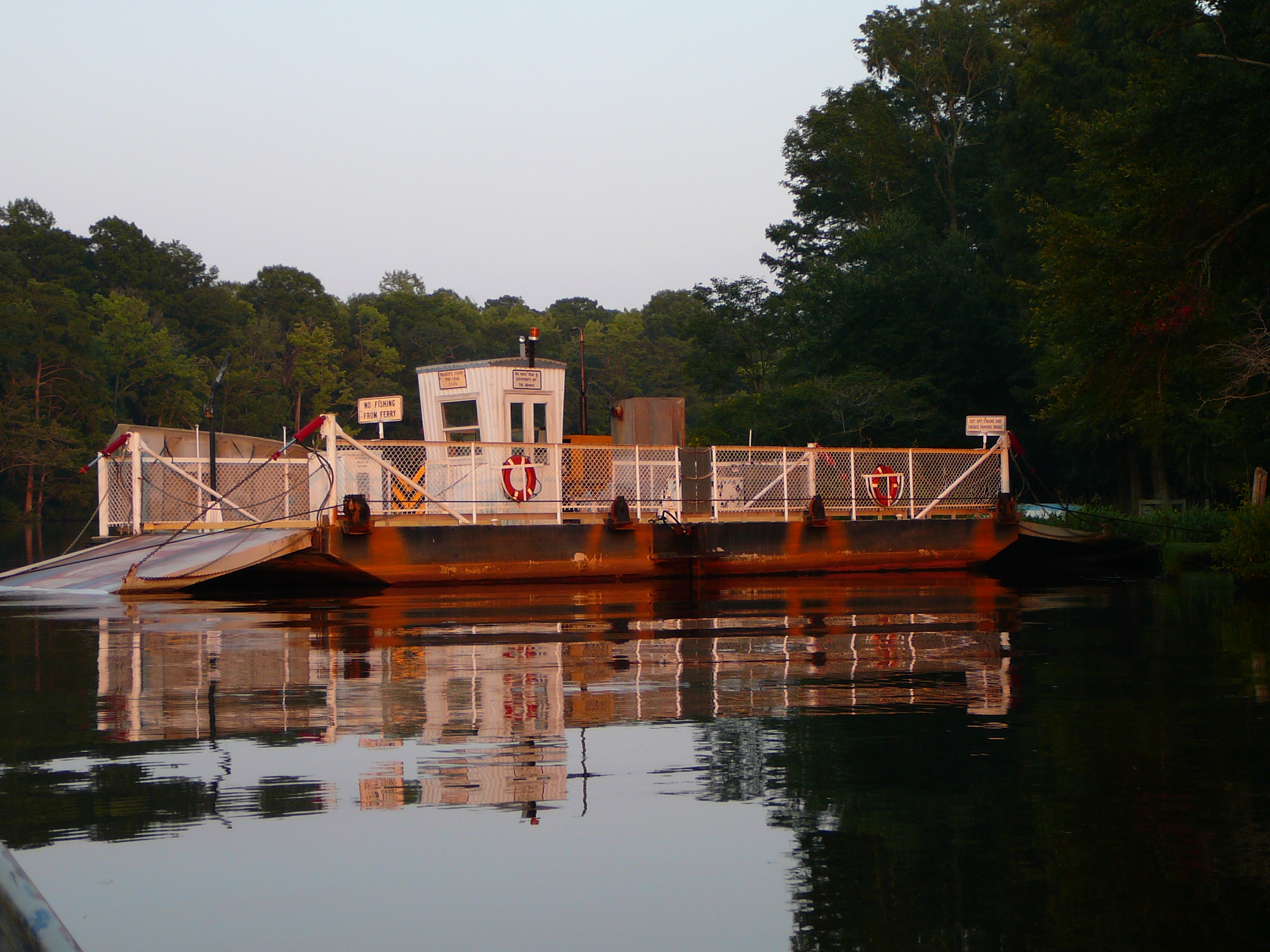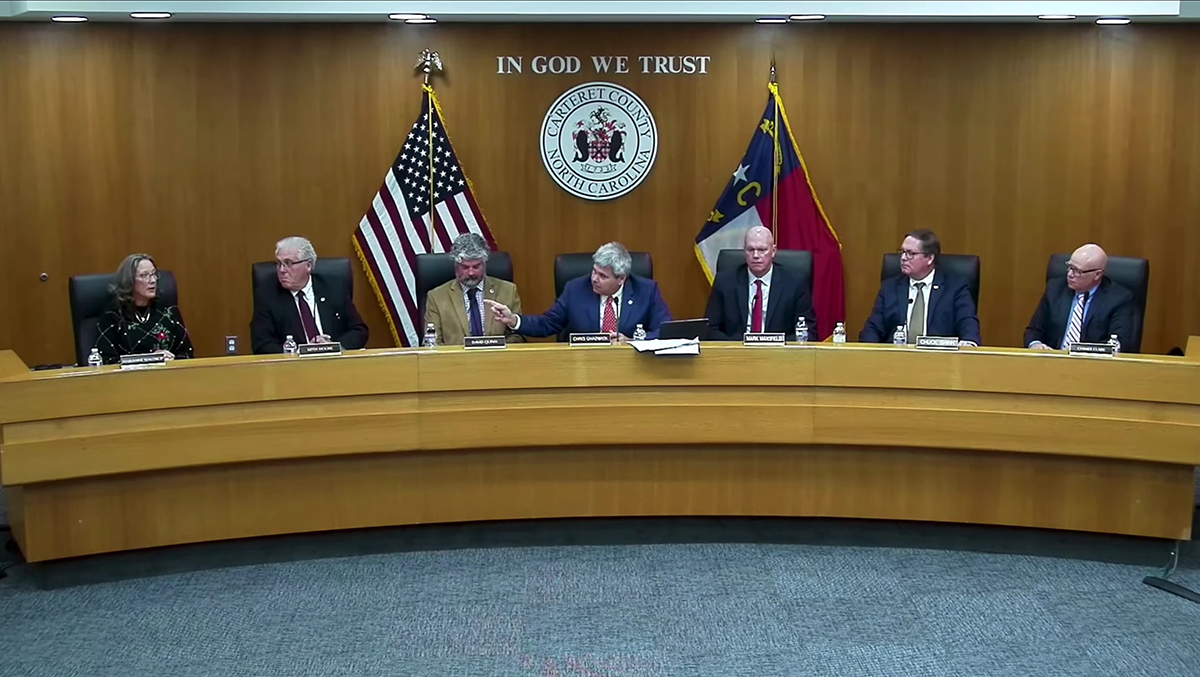
After being out of service for nearly two years, the Parker’s cable ferry that crosses the Meherrin River in Hertford County went back to work Tuesday.
The only other cable ferries in the state are the San Souci Ferry that crosses the Cashie River in Bertie County and the Elwell Ferry that crosses the Cape Fear River in Bladen County. The cable ferries carry no more than two vehicles and are guided across the river by cables connected to both shores.
Supporter Spotlight
Parker’s Ferry service was suspended in November 2018 for a major overhaul of the vessel, which included a new engine, propulsion system and hydraulics, as well as a complete refurbishment of the vessel’s hull, said North Carolina Department of Transportation officials Tuesday.
“We’re very pleased to be returning the Parker’s Ferry to service for the people of Hertford County. We’re confident that this recent overhaul will keep this important and historic transportation option in operation for many years to come,” Tim Hass, communications officer for NCDOT, told Coastal Review Online.
NCDOT contracted with Hunt’s Enterprises of Ahoskie to operate the ferry.
The overhaul of the vessel was completed earlier this year, but the Parker’s Ferry’s return to the river was delayed due to budget issues related to COVID-19.
Hertford County commissioners in April passed a resolution requesting funding for ferry operations from the state for the continued operation of Parker’s Ferry transportation services. The resolution states that NCDOT would on June 13 cancel the ferry operations contract, prompting commissioners to respond that the funds lost will have “a particular adverse effect on the economy beyond that of COVID-19.”
Supporter Spotlight
The department has operated the ferry since the 1930s, though versions of the ferry have been used to travel across the Meherrin River since the early 1900s.
The Sans Souci Ferry returned to service Aug. 22, which was suspended in June due to COVID 19-related budget issues.
“We are extremely pleased to be returning the Sans Souci ferry to service,” said NCDOT Division One Engineer Sterling Baker in the release. “We know it’s very important to the people of Bertie County, both as a form of transportation and a part of local history.”
The Sans Souci Ferry connects Woodard Road and San Souci Road over the Cashie River in rural Bertie County. Like Parker’s Ferry, NCDOT has operated the ferry since the 1930s. Similar versions of this ferry have been transporting passengers across the Cashie River since the 1800s, according to NCDOT.
Both San Souci and Parker’s ferries were built in the 1970s. The last refurbishments were 12 to 15 years ago.
The Sans Souci Ferry underwent a yearlong overhaul from October 2017 to November 2018 to allow for a complete overhaul and rebuilt the gear house and other accessories on the boat. The total cost of the overhaul was $100,000.
“Sans Souci and Parker’s ferries have become a bit of a tourist attraction in their areas. People actually drive out of their way to take a ride on them. Both Bertie and Hertford counties were fairly adamant about restoring service as soon as possible when they were out of service,” Hass said in an interview.
When asked if there are any plans to replace the two ferries with bridges, Hass explained that “Both the Sans Souci and Parker’s ferries are at the end of unpaved roads, so building a bridge would involve paving roads as well. The daily traffic counts on these roads would not justify the cost of building bridges.”
The Elwell Ferry that transports travelers across the Cape Fear River was suspended in early 2020 after the death of the contractor and has yet to resume service.
Andrew Barksdale, public relations officer for NCDOT, said that earlier this year, around January or February, NCDOT suspended service after the contractor died.
“Before we could advertise for a new bidder, the COVID-19 pandemic hit, and that severely hurt our revenues as a department. By late March, we stopped entering into any new contracts or awarding any new projects that were not mission critical – or an emergency,” he said in an interview. “Thus, we have not yet resumed the Elwell Ferry service.”
Barksdale said the intention is to resume that service sometime in 2021. NCDOT has indicated that the closure will end on Dec. 31 on the traveler information website, but that’s just a placeholder. “We’ll update as soon as we have more information,” he said.
“As an aside, over the past few years, it was operational only about 50% of the time. This was mostly due to high river levels – we’ve had a lot of wet seasons and months over the past few years,” said Barksdale. The Elwell Ferry averaged 25 a day to 70 a day, depending on the time of year.
In 1905, brothers Walter Hayes Russ and John Roland Russ petitioned the Bladen County commissioners to be allowed to operate what’s now the Elwell Ferry, named for an early family in the area, according to the state Department of Cultural Resources.
Before the state took over operation of inland ferries in the 1930s, Elwell ferry was rowed or paddled across the river by the brothers, who were paid by Bladen County. Mules and wagons were the primary passengers until 1916 when motor-powered vehicles came to the county.
The state built larger flats and used cable to pull the vessel. Around 1939, the state installed a gas engine. Three years later, Walter Russ died in an explosion caused by the poorly ventilated fumes igniting in the bilge. Until 1952 the Elwell Ferry was the only river crossing between Wilmington and Elizabethtown, which are 65 miles apart. That year a bridge was built 12 miles from the ferry. Traffic slowed on the ferry but the vessel continues to carry about 60 vessels per day, according to the state.
The inland cable ferries are just one aspect of how COVID-19 budget issues have affected NCDOT.
NCDOT is expecting a $300 million budget shortfall for the fiscal year that ended June 30, and anticipates significant financial impacts in the next fiscal year, according to officials.
NCDOT depends on the Motor Fuels Tax, Highway Use Tax and DMV fees. However, traffic volumes decreased significantly while residents were staying home to prevent the spread of COVID-19. This impacted revenue streams that pay for the transportation system.
In April, NCDOT notified local governments, stakeholders and the public that all but about 50 major projects planned to begin in the next 12 months were delayed because of budget issues. Additionally, the department in April said it was only allowing critical purchases, laying off temporary and embedded consultants, suspending or decreasing programs and services, and had instituted a hiring freeze.
Projects that are funded by Grant Anticipation Revenue Vehicle, or GARVEE, bonds, BUILD NC state transportation bonds and federal grants will move forward. NCDOT has also published a list of projects that have schedule changes.
In May, NCDOT announced that the department fell below the statutorily mandated cash floor of $293 million. The new cash floor was set at $267,322,500 in July under Session Law 2020-91. According to state law, once the department falls below the cash floor, it can no longer enter into new contracts that spend money on transportation projects.







